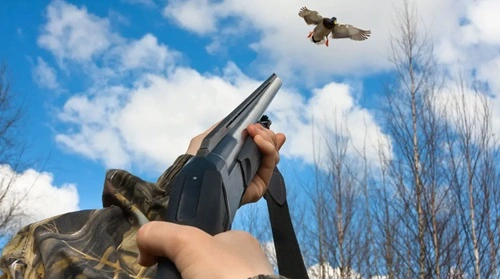Yes, in most cases, it is illegal to shoot birds with a pellet gun in the United States. Federal and state laws, such as the Migratory Bird Treaty Act (MBTA), protect many bird species, making it unlawful to harm them without proper authorization. While some non-native or pest species may not be protected, shooting birds with a pellet gun often involves legal restrictions, ethical considerations, and potential penalties.
Legal Framework for Shooting Birds
- The Migratory Bird Treaty Act (MBTA)
- Enacted in 1918, the MBTA protects over 1,000 species of migratory birds. It prohibits hunting, capturing, killing, or harming these birds without a permit.
- Violating the MBTA can lead to severe penalties, including fines and imprisonment.
- Commonly protected species include sparrows, robins, cardinals, and blue jays.
- State Hunting Regulations
- State laws often regulate the hunting of non-migratory birds or pest species, such as pigeons, European starlings, and house sparrows.
- Hunting with a pellet gun may be allowed for certain species, but hunters must follow state-specific licensing, hunting seasons, and local ordinances.
- City and Local Ordinances
- Many cities and towns prohibit the discharge of pellet guns within city limits for safety reasons. Violating these laws can result in fines or other legal consequences, even if the bird is not protected.
Birds That Are Legal to Shoot
- Non-Native Species
- Non-native or invasive species, such as pigeons, European starlings, and house sparrows, are generally not protected under the MBTA. States may allow their removal without a permit, provided local laws are followed.
- Pest Control
- Some states allow property owners to use pellet guns to address pest birds causing property damage, but this often requires a depredation permit or adherence to local wildlife control laws.
Penalties for Illegal Shooting
- Fines: Violations of the MBTA can result in fines of up to $5,000 per offense for individuals and higher penalties for organizations.
- Imprisonment: Criminal penalties for intentional harm to protected birds can lead to up to six months in jail.
- Confiscation of Weapons: In some cases, authorities may confiscate pellet guns used in illegal activities.
- Civil Lawsuits: Individuals harming birds in violation of laws may face lawsuits from wildlife organizations or property owners.
Ethical and Safety Considerations
- Public Safety: Shooting a pellet gun in urban or suburban areas poses risks to people, pets, and property. Always check local laws before using a pellet gun.
- Non-Lethal Alternatives: For bird control, consider humane methods such as deterrents, exclusion techniques, or contacting wildlife control professionals.
- Unintended Consequences: Misidentifying a bird as a pest and harming a protected species can result in unintentional violations of federal or state laws.
How to Stay Within the Law
1. Check Species Protection: Verify whether the bird is protected under the MBTA or state law before taking any action.
2. Obtain Permits: For protected species causing property damage, apply for a depredation permit through the U.S. Fish and Wildlife Service (USFWS) or your state wildlife agency.
3. Follow Local Ordinances: Ensure compliance with local laws governing the use of pellet guns.
4. Use Non-Lethal Methods: Explore alternatives like scare devices, reflective tape, or bird netting to control bird populations.
Related FAQs
Q1. Can I shoot pest birds with a pellet gun?
Ans: Yes, non-native pest birds like pigeons and house sparrows can typically be shot with a pellet gun in accordance with local and state laws.
Q2. What happens if I shoot a protected bird accidentally?
Ans: Even accidental harm to a protected bird can result in fines and penalties under the MBTA. Always verify the species before taking action.
Q3. Do I need a hunting license to shoot birds with a pellet gun?
Ans: In many states, a hunting license is required to hunt certain birds, even pest species. Check your state’s regulations.
Q4. Are pellet guns legal to use in cities?
Ans: Many cities prohibit the discharge of pellet guns within city limits. Violating these ordinances can result in fines or confiscation of the gun.
Q5. How can I deter birds without shooting them?
Ans: Use non-lethal methods such as bird spikes, reflective tape, decoys, or professional wildlife control services.
Conclusion
Shooting birds with a pellet gun is heavily regulated in the U.S. due to federal and state laws protecting most bird species. While certain non-native or pest birds may not be protected, compliance with local ordinances and ethical considerations is essential. When in doubt, explore non-lethal alternatives or consult with wildlife professionals to address bird-related issues legally and responsibly.


